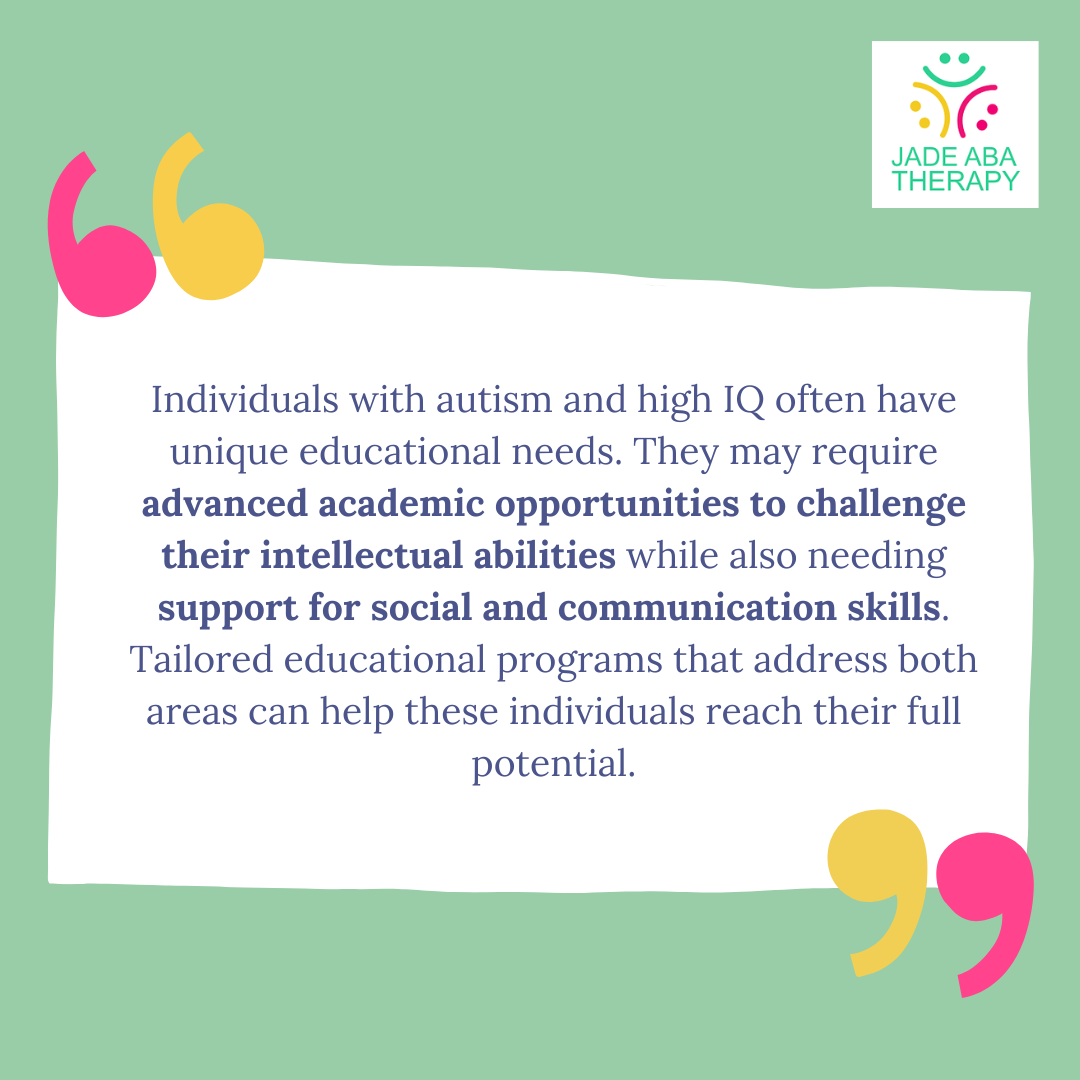One intriguing aspect of autism that has captured the interest of both researchers and the general public is the relationship between autism and high intelligence quotient (IQ). This article explores this fascinating topic, examining the potential links, underlying mechanisms, and implications for individuals and society.
Discover the benefits of ABA therapy in Maryland, where expert care meets compassionate support for children with autism.

Intelligence and IQ
Intelligence quotient (IQ) is a measure of a person’s intellectual abilities relative to the average population. An average IQ score is set at 100, with the majority of people scoring between 85 and 115. IQ tests assess a range of cognitive skills, including logical reasoning, problem-solving, and memory.
High IQ, typically defined as an IQ score above 130, is often associated with exceptional abilities in certain areas. However, it is important to note that IQ is just one measure of intelligence and does not capture the full range of human abilities and talents.
Autism and High IQ: The Link
The relationship between autism and high IQ is complex and multifaceted. While not all individuals with autism have high IQs, a significant proportion do exhibit above-average intelligence. Research has shown that individuals with autism are overrepresented in the high IQ population compared to the general population.
A study found that approximately 44% of individuals with autism have an IQ score above 85, with about 28% scoring in the high IQ range (above 130). This is a higher proportion than in the general population, where only about 2-3% of people score above 130 on IQ tests.
Another more recent study examined the cognitive profiles of individuals with autism who have high IQs. The study found that while these individuals excelled in areas such as pattern recognition and detail-oriented tasks, they often faced challenges with social cognition and executive functioning.

Theories Explaining the Link
Several theories have been proposed to explain the observed link between autism and high IQ. These theories suggest that the same genetic, neurological, or cognitive factors that contribute to autism may also be associated with high intelligence.
Genetic Factors
Genetic research has identified certain genes and genetic variations that are associated with both autism and high IQ. For example, variations in the CHD8 gene have been linked to both conditions. This suggests that there may be a genetic basis for the co-occurrence of autism and high intelligence.
Empathizing-Systemizing Theory
Simon Baron-Cohen, a prominent autism researcher, proposed the emphatizing-systemizing theory. According to this theory, individuals with autism have a heightened ability to systemize or understand and construct systems. This enhanced systemizing ability can lead to exceptional talents in areas such as mathematics, music, and engineering, which are often associated with high IQ.
Weak Central Coherence Theory
The weak central coherence theory suggests that individuals with autism tend to focus on details rather than the overall context. This detailed-oriented cognitive style can lead to strengths in specific areas, such as memory and pattern recognition, which can contribute to high IQ scores.
Intense World Theory
The intense world theory posits that the brains of individuals with autism are hyper-reactive and hyper-plastic, meaning they can form connections quickly and intensely. This heightened brain activity can lead to both the challenges associated with autism and the exceptional abilities observed in some individuals with high IQs.
Implications for Individuals with Autism and High IQ
Understanding the link between autism and high IQ has important implications for individuals, families, educators, and healthcare providers. It highlights the need for a nuanced approach to support and intervention that considers both the strengths and challenges of individuals with autism.

Despite their intellectual strengths, individuals with autism and high IQ may face social and emotional challenges. They may experience difficulties with social interactions, making it important to provide support in developing social skills and managing anxiety or depression. Counseling and social skills training can be beneficial.
Many individuals with autism and high IQ excel in careers that match their strengths, such as technology, engineering, and the arts. Employers can benefit from the unique talents and perspectives of these individuals by creating inclusive work environments that accommodate their needs and capitalize on their abilities.
Challenges and Considerations
While the link between autism and high IQ can be a source of strength, it also presents unique challenges. It is important to recognize and address these challenges to ensure that individuals with autism and high IQ receive the support they need.
Individuals with autism and high IQ may be misdiagnosed or underdiagnosed, particularly if their intellectual abilities mask their autism symptoms. This can lead to a lack of appropriate support and intervention. Increasing awareness and understanding of the diverse presentations of autism can help improve diagnostic accuracy.
High IQ individuals with autism may also experience social isolation due to difficulties with social interactions and communication. This isolation can contribute to mental health challenges, such as anxiety and depression. Providing opportunities for social engagement and peer support is crucial.

Future Directions and Research
Continued research is essential to deepen our understanding of the link between autism and high IQ. Future studies can explore the underlying mechanisms, potential interventions, and long-term outcomes for individuals with autism and high intelligence.
While not all individuals with autism have high IQs, a significant proportion do exhibit above-average intelligence. Various theories suggest that genetic, neurological, and cognitive factors may contribute to this link.
Understanding the strengths and challenges of individuals with autism and high IQ is essential for providing effective support and promoting their overall well-being. By recognizing their unique abilities and addressing their specific needs, we can help individuals with autism and high IQ achieve their full potential and make valuable contributions to society.
To learn more about how Jade ABA Therapy can help, feel free to contact us today and explore the best solutions for your loved one.




